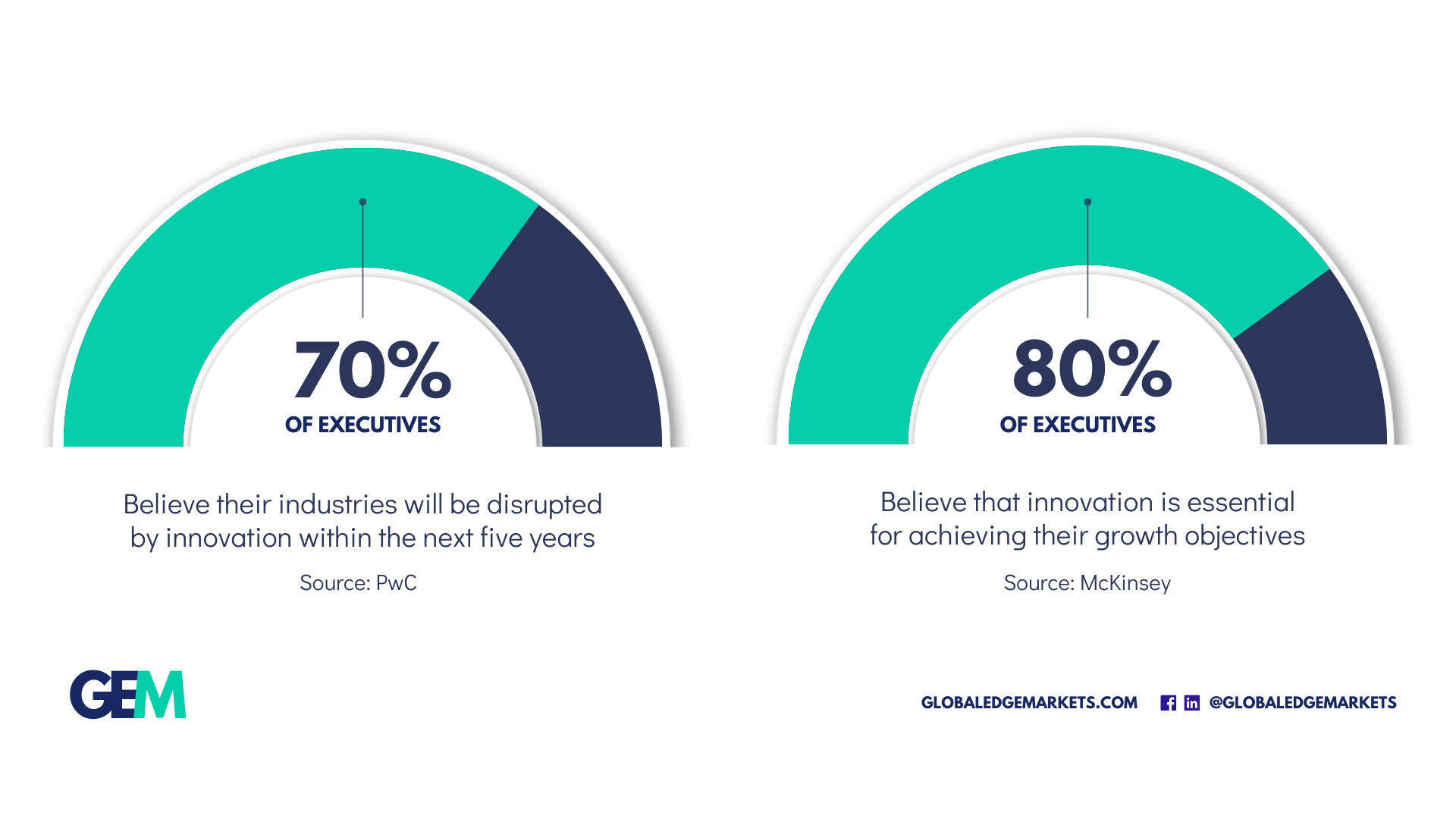Introduction
The world has shrunk. Borders blur, and competition intensifies in a globalized marketplace. Innovation in Global Business Expansion is the ultimate passport to success, allowing businesses to break through barriers and capture new markets. Consider Airbnb, a company that revolutionized hospitality by leveraging technology to create a peer-to-peer accommodation marketplace. The niche idea of renting air mattresses has become global, operating in over 220 countries. This success story is a powerful testament to the transformative power of innovation.
In today’s dynamic business landscape, the relentless pursuit of unbridled growth often overshadows a critical component of sustained success: optimization. While scaling operations and expanding market reach is undeniably attractive, neglecting the optimization of existing processes and systems can lead to many pitfalls. Companies fixated solely on expansion may experience inefficiencies that escalate costs, hinder productivity, and, ultimately, erode profitability. This article dives into the power of optimization and how it can catalyze enduring growth, empowering businesses to achieve long-term success beyond mere scale.
The Power of Innovation in Global Business Expansion
Innovation is no longer a luxury; it’s a necessity. Here’s how it empowers businesses in the global arena:

Competitive Advantage: Innovation fosters differentiation, allowing you to stand out in crowded markets. Apple, for instance, consistently leads the smartphone market through continuous design and technological advancements. Their brand, synonymous with quality and innovation, resonates with consumers worldwide (Stat: According to a YouGov BrandIndex survey conducted in December 2021, Apple ranked #1 in global brand perception, demonstrating the power of innovation in building a solid brand identity.).
Market Disruption: Innovation can redefine or even create entirely new markets. Netflix, for example, disrupted the entertainment industry by pioneering the subscription-based streaming model, setting new standards for global content consumption.
Risk Mitigation: The ever-changing global landscape presents many challenges, from economic fluctuations to technological disruptions. By embracing innovation, companies can adapt more readily, mitigating risk and ensuring business continuity. During the COVID-19 pandemic, companies adopting digital transformation strategies could pivot quickly to online models, ensuring survival and growth in a challenging environment.

Beyond the Traditional: Unveiling Additional Innovation Strategies
While product, process, and business model innovation are crucial, let’s explore additional avenues:
Open Innovation: Collaboration with external partners like universities or startups can accelerate innovation and lead to groundbreaking solutions. GEM facilitates cross-functional collaborations between its clients and external partners, allowing them to tap into a global network of expertise. Imagine a European fashion company collaborating with an African design collective to create a unique clothing line catering to European and African markets. This type of open innovation can lead to developing products with broader appeal and a more robust global footprint.
Social Innovation: Innovation doesn’t have to be solely profit-driven. Consider developing solutions that address social or environmental challenges, fostering positive societal impact while strengthening your brand image. Patagonia, the outdoor apparel company, is a prime example. They are renowned for their commitment to environmental sustainability, using recycled materials, and advocating for environmental protection. This focus on social good resonates with environmentally conscious consumers worldwide and contributes to their strong brand loyalty.
Emerging Technologies: Fueling the Future of Global Expansion
The rise of cutting-edge technologies like Artificial Intelligence (AI), Blockchain, and the Internet of Things (IoT) is reshaping the global business landscape. Here’s how they can accelerate your journey:
AI can personalize customer experiences, optimize supply chains, and generate data-driven insights to inform strategic decision-making. Imagine a global retail chain using AI to analyze customer purchase history and recommend personalized products across different geographic regions. This would not only enhance the customer experience but also foster brand loyalty and increase sales.
Blockchain: Blockchain technology can revolutionize global trade by enhancing transparency, security, and traceability throughout the supply chain. This can benefit companies operating in complex global supply chains with multiple stakeholders.
IoT: By connecting devices and collecting real-time data, IoT can improve operational efficiency and deliver valuable customer insights across geographically dispersed locations. For instance, a manufacturing company with factories in different countries can leverage IoT to monitor production lines in real time, identify potential issues early on, and optimize production processes for maximum efficiency.

The Complexities of Global Innovation
Operating in a globalized world, businesses are confronted with a myriad of cultural, market, and regulatory disparities that can significantly impede innovation. Cultural differences in decision-making styles, risk tolerance, and time perspectives can hinder effective collaboration and knowledge transfer. Market variations in consumer behavior, purchasing power, and competitive dynamics necessitate tailored innovation strategies to ensure market fit. Moreover, the intricate web of intellectual property laws, data privacy regulations, and trade policies across different jurisdictions presents significant challenges in protecting intellectual assets and bringing new products or services to market.
Talent Acquisition and Retention
Securing and retaining top talent is a critical component of driving innovation. In today’s highly competitive global marketplace, organizations face increasing difficulties in attracting and retaining skilled individuals with the requisite creativity, technical expertise, and cultural adaptability. Geographical constraints, visa requirements, and language barriers can complicate talent acquisition efforts. Furthermore, retaining top talent necessitates creating a stimulating work environment that fosters professional growth, offers competitive compensation packages, and aligns with employees’ career aspirations. Balancing global talent strategies with local market needs and employee preferences is essential for long-term success.
Intellectual Property Protection
Safeguarding intellectual property is paramount for businesses to reap the rewards of their innovation investments. However, the global intellectual property landscape is characterized by inconsistencies in patent laws, trademark regulations, and copyright enforcement. These disparities create vulnerabilities for companies operating across multiple jurisdictions. Additionally, the rise of counterfeiting and piracy poses significant threats to brand reputation and revenue. To mitigate these risks, organizations must develop robust intellectual property protection strategies, including patent filings, trademark registrations, and copyright management. Furthermore, collaboration with law enforcement agencies and industry associations can help combat intellectual property infringement.
Building Global Partnerships
Strategic alliances and collaborations can accelerate innovation by pooling resources, sharing expertise, and accessing new markets. However, forging successful global partnerships requires careful consideration of cultural compatibility, organizational alignment, and shared objectives. Building trust and effective communication channels are essential for overcoming challenges such as unequal power dynamics, conflicting interests, and knowledge transfer issues. Clear roles, responsibilities, and performance metrics are crucial for managing partnerships effectively. Additionally, companies must be prepared to adapt to changing market conditions and partner dynamics.
Adapting to Local Markets
While global innovation strategies offer economies of scale and knowledge sharing, successful innovation in Global Business Expansion necessitates a deep understanding of local market dynamics. Consumer preferences, buying habits, and competitive landscapes vary significantly across regions. Companies must balance global consistency with local adaptation to thrive in diverse markets. This involves tailoring product features, marketing messages, and distribution channels to meet local customers’ specific needs and preferences. Effective market research and customer insights are essential for identifying opportunities and avoiding costly mistakes.
Overcoming Cultural Barriers
Fostering a collaborative and innovative culture across different cultural backgrounds is a complex but essential challenge. Cultural differences in communication styles, decision-making processes, and time perspectives can hinder teamwork and knowledge sharing. Building trust and respect among employees from diverse backgrounds is crucial for creating a psychologically safe environment where innovation can flourish. Companies can promote cultural understanding through training programs, cross-cultural exchange initiatives, and inclusive leadership practices. Embracing diversity and inclusion can lead to new perspectives, ideas, and solutions.
By addressing these challenges and capitalizing on emerging opportunities, organizations can enhance their ability to innovate globally and achieve sustainable growth.
Conclusion
Innovation in Global Business Expansion is the lifeblood of global business success. Organizations can unlock unprecedented growth opportunities by understanding its multifaceted nature and implementing strategic initiatives. Businesses can position themselves as leaders in the global marketplace by fostering a culture of innovation, embracing emerging technologies, and collaborating with external partners. Remember, innovation is not a destination but a continuous journey. Embrace the challenge, foster creativity, and reap the rewards of a more innovative and prosperous future.
To begin your innovation journey, consider partnering with experts who can guide you. At GlobalEdgeMarkets, we specialize in helping businesses foster a culture of innovation and implement strategies that drive global growth. Our team of experts is ready to assist you in transforming your ideas into successful products, services, and business models that will set new standards of success globally.
Embrace innovation as a strategic imperative today, and secure your place in the future of global business.
Featured
Leveraging Technology For Optimal Business Performance
The Business and IT Alignment Assessment provides an organization with a vehicle to evaluate the maturity of its strategic choices and alignment practices, making it possible for a firm to see where it stands and how it can improve.
With this alignment between business goals and IT functionality, businesses may be able to remain competitive in today’s fast-paced digital landscape.


